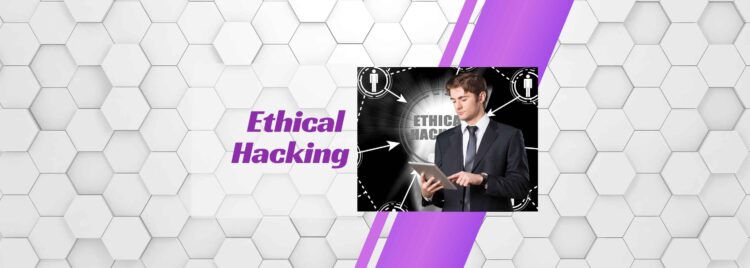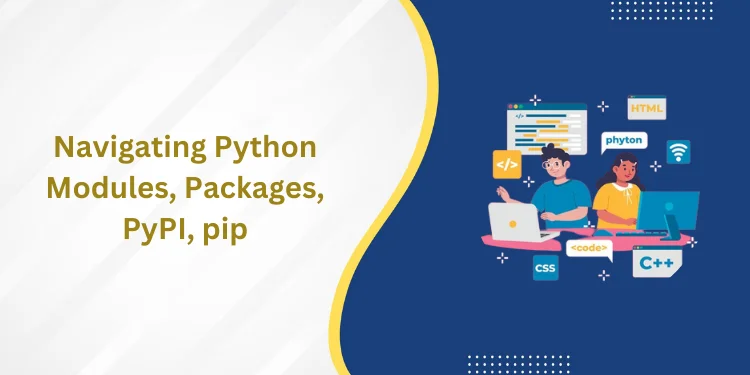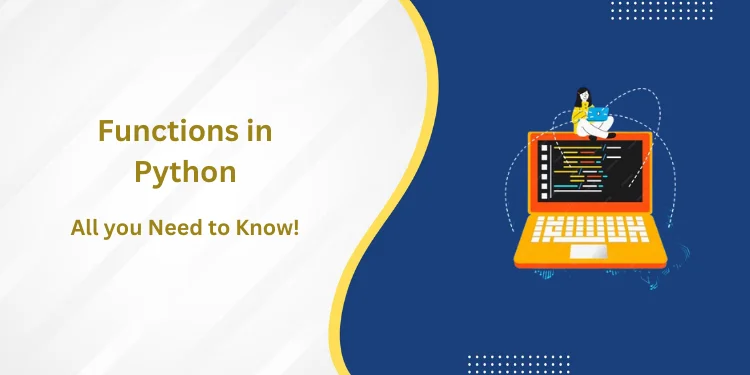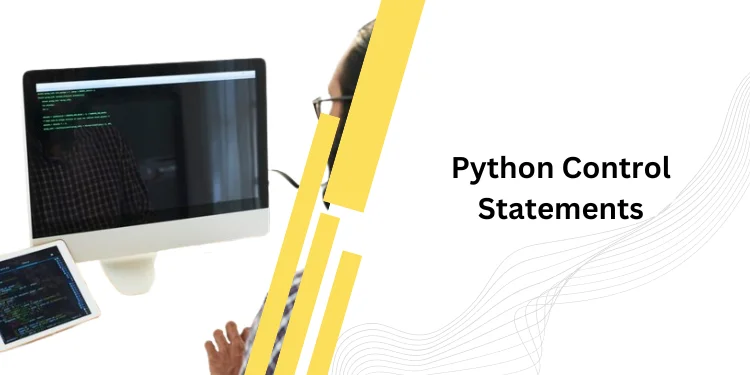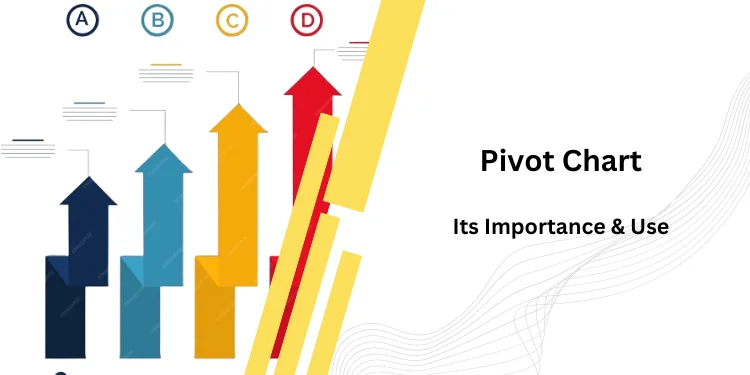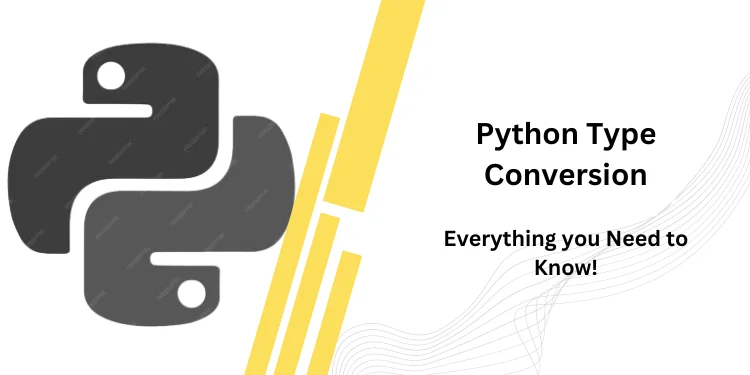Table of Contents
ToggleWhat is Ethical Hacking?
Ethical hacking, also known as “white hat” hacking, uses hacking techniques to identify and address vulnerabilities in computer systems and networks. Ethical hackers are cybersecurity professionals that organizations hire to perform controlled and authorized attacks on their plans to test their security and find weaknesses that malicious attackers could exploit.
Ethical hacking aims to identify vulnerabilities before malicious actors can exploit them. By exposing these vulnerabilities, organizations can take steps to fix them and improve their overall cybersecurity posture. Ethical hackers use the same techniques and tools as malicious hackers, but with the crucial difference that their activities are authorized and done to help the organization.
Ethical hacking is an important part of modern cybersecurity because it helps organizations stay ahead of the ever-evolving threat landscape. As new vulnerabilities and attack techniques emerge, ethical hackers can help identify them and ensure that the organization is prepared to defend against them.
However, it’s important to note that hacking is not a license to break the law. Ethical hackers must adhere to strict guidelines and protocols, and their activities must always be legal and authorized. This includes obtaining permission from the organization they’re testing, as well as adhering to relevant laws and regulations.
Overall, hacking is a critical component of modern cyber security and plays a vital role in helping organizations protect themselves from cyber-attacks.
The difference between Ethical Hacking & Malicious
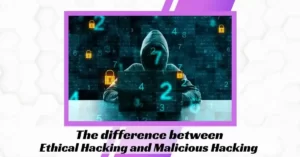
Hacking
The main difference between hacking & malicious hacking is the intent behind the activity. Ethical hacking is done with the intention of identifying vulnerabilities and weaknesses in computer security systems and networks in order to help organizations improve their security posture. On the other hand, malicious hacking is done with the intention of exploiting those vulnerabilities for personal gain or to cause harm.
While both types of hacking may involve the use of similar techniques and tools, ethical hackers always operate within a strict ethical and legal framework. They must obtain permission from the organization they’re testing, and their activities must be authorized and legal. They also have a responsibility to protect any information they may come across during the course of their work and to ensure that their actions do not cause harm to the organization or its customers.
In contrast, malicious hackers operate outside of any legal or ethical framework. They may use the same techniques and tools as ethical hackers, but they do so with the intention of stealing data, causing damage, or extorting money from their victims.
The intent behind hacking is important because it determines whether the activity is legal and ethical. ethical hacking is an important part of modern cybersecurity and can help organizations stay ahead of the evolving threat landscape. Malicious hacking, on the other hand, is a serious criminal activity that can cause significant harm to individuals and organizations.
The Ethical Hacker’s toolkit
Ethical hacking is the practice of using ethical hacking techniques for the purpose of identifying and fixing security vulnerabilities in computer systems and networks. To carry out ethical hacking, professionals use a wide range of tools and techniques that help them identify weaknesses and exploit them in a controlled and safe manner. Here are some of the most generally used tools and techniques in the ethical hacker’s toolkit:
Port scanners: These tools help ethical hackers identify open ports and services running on a target system or network.
Vulnerability scanners: These tools scan a target system or network for known vulnerabilities that can be exploited by attackers.
Password cracking tools: These tools are used to crack weak passwords or brute force attack on encrypted passwords.
Packet sniffers: These tools intercept and analyze network traffic to capture sensitive data like passwords and other confidential information.
Exploit frameworks: These are collections of tools and scripts that are used to identify and exploit specific vulnerabilities.
Social engineering techniques: These involve manipulating people into revealing sensitive information or providing access to restricted systems or networks.
Phishing: a technique to send a fake email that appears to be legitimate to trick the recipient into revealing sensitive information.
Reverse engineering: This involves decompiling software or firmware to identify vulnerabilities or gain access to protected code.
It’s important to note that ethical hackers must follow strict ethical guidelines and obtain written permission from the system owners before conducting any tests. They must also confirm that their actions do not cause harm or disruption to the systems they are testing. By using these tools and techniques in a controlled and responsible manner, ethical hackers can help organizations improve their security and protect against malicious attacks.
Click here to know about: data science course
Who Hires Ethical Hackers?
The demand for ethical hackers, also known as “white hat” hackers, has been growing rapidly in recent years due to the increasing number of cyber threats and security breaches. Ethical hackers are hired by a variety of organizations to test and improve their security posture. Here are some examples of who hires ethical hackers:
Corporations: Large corporations hire ethical hackers to identify vulnerabilities in their computer systems and networks, and to conduct security assessments and penetration testing.
Government agencies: Government agencies at all levels hire ethical hackers to help secure their critical infrastructure, sensitive data, and national security systems.
Financial institutions: Banks and other financial institutions hire ethical hackers to test their security systems and ensure that customer data is protected.
Healthcare organizations: Healthcare organizations hire ethical hackers to ensure that patient data is secure and protected from cyber threats.
Startups: Even small startups with limited resources hire ethical hackers to test their products and systems before they go to market.
As the demand for cybersecurity professionals continues to grow, so does the need for ethical hackers. In fact, a recent report by Cybersecurity Ventures predicts that there will be 3.5 million unfilled cybersecurity jobs by 2021. This has created a great opportunity for individuals with the necessary skills and certifications to pursue a career in hacking. Employers are offering competitive salaries and benefits to attract and retain top talent, making it an attractive career path for those interested in the field.
Common Ethical Hacking Scenarios

Businesses use ethical hackers to test their security in a variety of scenarios. Here are some common hacking scenarios:
Penetration testing: This involves an ethical hacker attempting to exploit vulnerabilities in a target system or network to determine the extent to which it is vulnerable to attack.
Social engineering: This involves an ethical hacker attempting to trick employees into revealing sensitive information or providing access to restricted systems or networks. This can include phishing attacks, pretexting, or baiting.
Wireless network testing: This involves an ethical hacker attempting to access a company’s wireless network to determine whether it is secure or vulnerable to attack.
Web application testing: This involves an ethical hacker attempting to exploit vulnerabilities in a company’s web applications, such as SQL injection or cross-site scripting attacks.
Physical security testing: This involves an ethical hacker attempting to gain access to a company’s physical facilities, such as offices or data centers, to determine whether they are secure or vulnerable to attack.
Internet of Things (IoT) testing: This involves an ethical hacker attempting to exploit vulnerabilities in IoT devices, such as smart home devices or industrial control systems, to determine whether they are secure or vulnerable to attack.
In all of these scenarios, the ethical hacker is attempting to identify vulnerabilities and weaknesses in a company’s security posture. By doing so, the company can take steps to address these weaknesses and improve their overall security. This can help prevent data breaches, protect against cyber attacks, and safeguard sensitive information.
Also read: data science course in delhi
The Legal and Ethical Implications of Hacking
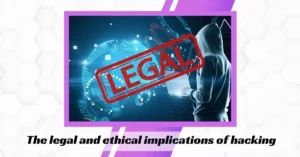
Hacking can have serious legal and ethical implications. While hacking is legal and ethical, unauthorized hacking can result in criminal charges and civil lawsuits. Here are some legal and ethical implications of hacking:
Criminal charges: Unauthorized hacking can result in criminal charges, such as computer fraud, theft of trade secrets, and unauthorized access to a computer system.
Civil lawsuits: Victims of hacking can sue the hacker for damages, such as loss of data, breach of privacy, and reputational harm.
Ethical considerations: Ethical hacking requires obtaining permission from the owner of the system being tested and using the information obtained for ethical purposes only.
Gray area of cybersecurity law: There is a gray area of cybersecurity law that makes it difficult to determine what is legal and ethical when it comes to hacking. Laws vary by country and state, and it can be challenging to navigate the complex legal landscape.
It’s important for individuals and organizations to understand the legal and ethical implications of hacking and to conduct themselves in a responsible and ethical manner. Engaging in ethical hacking can help organizations identify and address vulnerabilities in their security posture, while unauthorized hacking can lead to criminal charges, civil lawsuits, and reputational harm. It is important to consult with legal counsel and adhere to ethical guidelines when conducting any type of security testing or hacking.
How to become an Ethical Hacker
To become an ethical hacker, one must have a combination of technical skills, knowledge, and a strong ethical foundation. Here are some steps to becoming an ethical hacker:
Develop a strong technical foundation: A strong foundation in programming languages, operating systems, networks, and databases is essential for ethical hacking. Understanding of programming languages such as Python, Java, & C++, as well as operating systems such as Linux and Windows, is crucial.
Understand security concepts: Understanding security concepts such as encryption, firewalls, and intrusion detection systems is also essential for hacking.
Obtain relevant certifications: Certifications such as the Certified Ethical Hacker (CEH) and Offensive Security Certified Professional (OSCP) can demonstrate your expertise in the field of hacking.
Learn ethical hacking techniques: Learning how to conduct vulnerability assessments, penetration testing, and social engineering attacks are all critical skills for an ethical hacker.
Build a strong ethical foundation: hacking requires a strong ethical foundation. Understanding and adhering to ethical guidelines, obtaining permission before testing systems, and using the information obtained for ethical purposes only are all critical components of hacking.
Gain practical experience: Practical experience is essential for becoming an ethical hacker. Building a portfolio of hacking projects, participating in bug bounty programs, and working with cybersecurity professionals are all ways to gain practical experience.
Becoming an ethical hacker is a challenging but rewarding career path. It requires a combination of technical skills, knowledge, and a strong ethical foundation. By developing these skills and gaining practical experience, individuals can succeed in this dynamic and rapidly growing field.
Ethical Hacking Certifications
There are several ethical hacking certifications that are recognized in the industry and can demonstrate a professional’s expertise in the field. Here are some of the most important ethical hacking certifications and why they’re important:
Certified Ethical Hacker (CEH): The CEH certification is one of the most popular and well-known ethical hacking certifications. It demonstrates that an individual has a strong foundation in hacking techniques and understands how to identify and exploit vulnerabilities in computer systems.
Offensive Security Certified Professional (OSCP): The OSCP certification is designed to test an individual’s ability to identify and exploit vulnerabilities in a hands-on, real-world environment. It is highly regarded in the industry and demonstrates a high level of technical skill.
Certified Information Systems Security Professional (CISSP): While not specifically an hacking certification, the CISSP certification demonstrates an individual’s expertise in information security and covers a broad range of security topics, including ethical hacking.
GIAC Penetration Tester (GPEN): The GPEN certification demonstrates an individual’s ability to conduct penetration testing and identify vulnerabilities in computer systems.
These certifications are important because they demonstrate an individual’s expertise in hacking and provide employers with a standardized way to assess a professional’s skills and knowledge. They can also help professionals stand out in a competitive job market and can lead to higher salaries and better job opportunities.
The Future of Ethical Hacking
The future of ethical hacking looks promising as the demand for cybersecurity professionals continues to grow. Here are some trends that are expected to shape the field of ethical hacking in the coming years:
Artificial intelligence and machine learning: As cyber threats become more sophisticated, artificial intelligence and machine learning will play an increasingly important role in hacking. These techn
ologies can help identify and respond to threats in real-time, making it easier for ethical hackers to detect and mitigate attacks.
Internet of Things (IoT) security: With the increasing adoption of IoT devices, the security of these devices will become a major concern. Ethical hackers will play an important role in identifying vulnerabilities in these devices and ensuring that they are secure.
Cloud security: Cloud computing is becoming more prevalent, and with it, the need for cloud security. Ethical hackers will need to develop expertise in cloud security and understand how to identify and mitigate risks associated with cloud-based systems.
Regulatory compliance: With the introduction of new regulations such as the General Data Protection Regulation (GDPR) and the California Consumer Privacy Act (CCPA), ethical hackers will need to develop a deep understanding of these regulations and help organizations achieve compliance.
In summary, the future of hacking looks bright, with new technologies and trends presenting new opportunities for ethical hackers to protect organizations from cyber threats. As the field continues to evolve, ethical hackers will need to stay up-to-date with the latest trends and technologies to remain effective in their roles.
Ethical Hacking Success Stories
How ethical hackers have helped organizations improve their security posture.
There are many examples of ethical hackers successfully identifying and mitigating security vulnerabilities for organizations. Here are a few real-world examples:
Bug bounty programs: Many companies, such as Google, Facebook, and Microsoft, offer bug bounty programs that incentivize ethical hackers to find and report vulnerabilities in their systems. These programs have been successful in identifying and fixing security issues before they can be exploited by malicious actors.
Pentagon Hack the Pentagon program: In 2016, the U.S. Department of Defense launched a bug bounty program called Hack the Pentagon. The program was successful in identifying over 1,400 vulnerabilities in the Department of Defense’s systems, which were then patched.
Uber breach: In 2016, a group of ethical hackers identified a vulnerability in Uber’s systems that allowed them to access the personal data of over 57 million users. The hackers reported the vulnerability to Uber, which paid them a $100,000 bounty for their help in identifying and fixing the issue.
Target breach: In 2013, Target suffered a major data breach that exposed the personal and financial data of over 110 million customers. Ethical hackers were able to identify the vulnerability that led to the breach and helped Target implement measures to prevent similar attacks in the future.
These are just a few examples of how ethical hackers have helped organizations improve their security posture by identifying and mitigating vulnerabilities in their systems. By working together with cybersecurity professionals, ethical hackers can play a vital role in protecting organizations from cyber threats.
Conclusion
In conclusion, hacking is an important aspect of cybersecurity that plays a crucial role in protecting organizations from cyber threats. Ethical hackers use their skills and knowledge to identify vulnerabilities in computer systems, networks, and applications and help organizations mitigate these risks. By doing so, they help organizations prevent data breaches, protect sensitive information, and maintain the trust of their customers.
However, hacking also raises ethical and legal considerations, and it is important for ethical hackers to work within a framework of guidelines and regulations. Organizations must ensure that they engage ethical hackers for the right reasons and that they have proper policies in place to protect themselves and the ethical hackers they engage.
As the field of cybersecurity continues to evolve, the demand for ethical hackers will continue to grow, and new technologies and threats will emerge. Ethical hackers must stay up-to-date with the latest trends and technologies to remain effective in their roles and continue to provide value to organizations. With the right training, skills, and certifications, ethical hackers can make a positive impact on the cybersecurity industry and help organizations protect themselves from cyber threats.
Frequently Asked Questions
What is ethical hacking?
Ethical hacking is the practice of using hacking techniques to identify vulnerabilities in computer systems, networks, and applications with the goal of improving their security. Ethical hackers are authorized to conduct these activities and work with organizations to help them identify and mitigate security risks.
How is ethical hacking different from malicious hacking?
Ethical hacking is conducted with the goal of improving security and is authorized by the organization being tested. Malicious hacking, on the other hand, is done with the intent of causing harm or gaining unauthorized access to computer systems, networks, or applications. It is illegal and can result in serious consequences for the hacker.
What qualifications do I need to become an ethical hacker?
To become an ethical hacker, you need to have a solid understanding of computer systems, networks, and programming languages. You can acquire these skills through formal education, training programs, and certifications. Some commonly recognized certifications for ethical hackers include the Certified Ethical Hacker (CEH), Offensive Security Certified Professional (OSCP), and CompTIA Security+.
How can ethical hacking benefit organizations?
Ethical hacking can help organizations identify vulnerabilities in their systems and networks that could be exploited by malicious actors. By identifying and addressing these vulnerabilities, organizations can reduce the risk of data breaches and protect sensitive information. Ethical hacking can also help organizations comply with regulatory requirements and improve their overall security posture.
Is ethical hacking legal?
Ethical hacking is legal when conducted with the authorization of the organization being tested. However, there are legal and ethical considerations that ethical hackers must adhere to, such as obtaining written permission, respecting the privacy of individuals, and following relevant laws and regulations. Any unauthorized hacking, even if done with good intentions, is illegal and can result in serious consequences.

